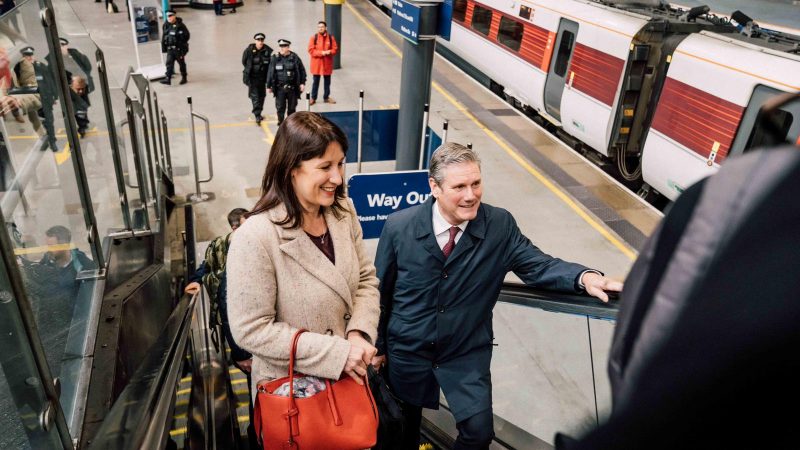
Labour has been accused of “kidding itself” about the cost of its plans for a “decade of national renewal” after research estimated that the next government will need to spend an extra £142bn a year by 2030 to maintain current levels of public services.
The new report from think tank the Centre for Progressive Policy (CPP) – published today – models the impact of the UK’s ageing population and price rises on spending in areas including healthcare, pensions and education.
Its analysis suggests that spending on such core public services will need to increase by £630bn between now and the end of the next parliament. It found that health spending would be the biggest driver of spending increases, projecting that it would rise by £50bn per year by 2030.
CPP CEO Charlotte Alldritt said: “Our analysis shows the harsh reality of the increase in public spending the next government will need to undertake just to stand still.
“Keir Starmer has talked about a decade of renewal and fair growth in all places. These are the right aims, but Labour is kidding itself if it thinks they can be delivered for free.
“Labour may see a focus on fiscal discipline as politically imperative in opposition, but to make any progress on reversing our economic stagnation, it will need to take a longer-term view of how spending can contribute to fair growth.”
The report argues either tax rises or spending cuts “will be necessary to put the public finances on a healthier footing”, with CPP calculating that taxes would likely need to rise from 36.5% to 38.8% of GDP by 2030 to halve the projected deficit.
CPP said its report “looks to inject some realism” into the public debate on the state of the UK’s public finances, arguing that, “given rising demands on public spending and Labour’s ambitions for transformative change, any plan that does not involve taxing and spending more is simply not credible”.
The report sets out recommendations including targeting £19bn of additional public spending per year on areas shown to have an impact on productivity growth such as public health, early years, childcare and adult skills, funded by reforms to the tax system, including equalising the rate of capital gains tax with income tax.
The report also recommends reforming the UK’s fiscal rules to support borrowing linked to productive long-term investment and spending and allocating 2% of income tax to local places with the aim of driving growth across the UK.
Commenting on the recommendations on fiscal rules, crossbench peer Jim O’Neill – a former Treasury minister who has been advising Labour – said: “Arbitrary deadlines are constraining any long-term investments where the pay back is two to three times longer than the debt their spending would create.
“Moving this deadline to ten years and assessing the economic impact of infrastructure projects over the long term would allow governments to make policy choices based on the long-term potential economic benefit to the country, rather than the short-term debt consequences.
“This means investments from early years to rail infrastructure could be properly considered in terms of their impact on long-term growth.”
The Labour Party was approached for comment.




More from LabourList
Turning the page? Labour’s recovery in the polls show a path to 2029 victory
Restoration announce recommendations for NEC candidates
‘Factionalism at the top is weakening Labour – and handing a gift to Reform’